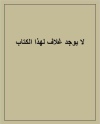Jihad is a Transitional Measure
At the core of all the distorted, confused theories and the chaotic, irresponsible practices of the so-called Islamic fundamentalists is their failure to appreciate that some principles of traditional Sharia were designed merely to serve a transitional purpose. Having served their purpose, they must be repealed and replaced by more appropriate and permanent principles. Any attempts to delay or frustrate that process, by insisting upon the implementation of outdated and unsuitable principles are futile and counter-productive. We can illustrate this with reference to the principle of compulsory conversion to Islam which has been associated with the concept of Jihad.
It is an historical fact that Islam used compulsion in spreading to many parts of the world. However, Islam took root and gained permanence not through compulsion but through persuasion and its ability to provide a practical and satisfying religion. But the concept of Jihad, and the principle of compulsory conversion derived from it are no longer suitable for modern conditions. As such, they must be repealed. The current insistence on the part of Moslem fundamentalists that the same outmoded concept is to be employed is not only extremely dangerous but is contrary to Islam.
The concept of compulsory, even violent conversion is the motivating force behind many fundamentalist movements. In the Sudan, for example, there have been numerous examples of sectarian religious violence. The Ansar followers of El Mahdi, currently led by Saddig El Mahdi, and the Moslem Brothers, are active proponents of this tradition. They have consistently abused the political process and have attempted to terrorise their political rivals in pursuit of their goals. The violent insurgency of 1970 in Omdurman and Abba and the aborted foreign –backed invasion of 1976, are only recent examples. There is also the bloody, terrorist history of the Moslem Brothers at the University of Khartoum which was also manifested in the tragic events of March 1980 on the campus. Other incidents of fanatic religious violence in Sudan include the Amstry incident of 1977, where a small group of religious fanatics attacked an isolated police station near the country’s western border, and brutally murdered its men in an attempt to initiate an armed religious revolt. Similar incidents can break out at any time in Sudan because such feelings and attitudes are cultivated by the Moslem Brothers and other fanatic religious groups.
If one crosses the border into Egypt, one finds similar movements and incidents. There was the Takfeer and Hijra group that kidnapped and murdered a government minister, Shikh Al Zahabi, in 1978. The Moslem Brothers are also extremely active in exacerbating sectarian tension and violence between Egyptian Moslems and Copts as witnessed by events in Al Daawa. (The Moslem Brothers Magazine, June 1980, pp. 22-23).
Syria also is suffering from the terrorist activities of the Moslem brothers who seem to believe that the end justifies cowardly and un Islamic means. The massacre at the Army Cadets Academy and numerous assassinations of school teachers and others who fail to comply with their command provide typical examples of their behaviour. (News Bulletin Al Natheer, March 1980, pp. 6, 8 and 9).
In addition to these examples from Sudan, Egypt and Syria, similar instances can be found in almost every Moslem country. All of these acts of terrorism have been perpetrated in the name of Islam in violation of its most sacred tenets. All such acts are the result of distorted and confused understanding of the basic principles of Islam and lack even the good faith which could otherwise merit a degree of sympathy for the culprits. Since all of these activities contravene fundamental principles of traditional Sharia Islamiaa itself, they must be categorically denounced and condemned by every Moslem. Such anarchic, futile brutalities not only fail, inasmuch as compulsion and terrorism can never achieve lasting constructive socio-political change, but they are also counterproductive and damaging to the cause of religious revival. They may, however, have a positive aspect in that they do reflect the desperate need for fundamental social-political change throughout the Islamic world. They also attract attention and generate discussion concerning Islam. This may eventually provide the opportunity for the emergence of a valid, modern Islamic ideology.

